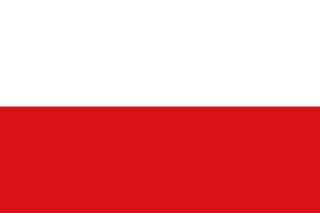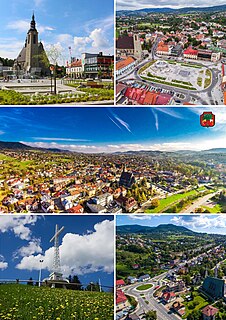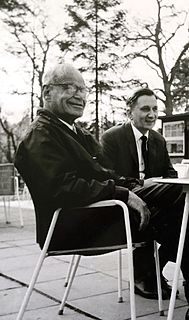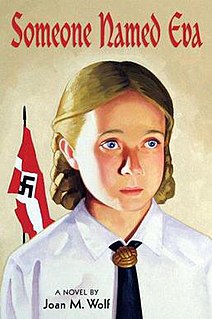
Linz-Bindermichl is a suburb of Linz in Upper Austria, which was the site of a post World War II American sector displaced person camp.

Linz-Bindermichl is a suburb of Linz in Upper Austria, which was the site of a post World War II American sector displaced person camp.

Linz is the capital of Upper Austria and third-largest city in Austria. In the north of the country, it is on the Danube 30 kilometres south of the Czech border. In 2018, the population was 204,846.

Upper Austria is one of the nine states or Länder of Austria. Its capital is Linz. Upper Austria borders on Germany and the Czech Republic, as well as on the other Austrian states of Lower Austria, Styria, and Salzburg. With an area of 11,982 km2 (4,626 sq mi) and 1.49 million inhabitants, Upper Austria is the fourth-largest Austrian state by land area and the third-largest by population.
The World Wide Web has become a major delivery platform for a variety of complex and sophisticated enterprise applications in several domains. In addition to their inherent multifaceted functionality, these Web applications exhibit complex behaviour and place some unique demands on their usability, performance, security, and ability to grow and evolve. However, a vast majority of these applications continue to be developed in an ad hoc way, contributing to problems of usability, maintainability, quality and reliability. While Web development can benefit from established practices from other related disciplines, it has certain distinguishing characteristics that demand special considerations. In recent years, there have been developments towards addressing these considerations.

The Johannes Kepler University Linz is a public institution of higher education in Austria. It is located in Linz, the capital of Upper Austria. It offers bachelor's, master's, diploma and doctoral degrees in business, engineering, law, science, social sciences and medicine.

Limanowa is a small town in southern Poland, in the Lesser Poland Voivodeship. It is the capital of Limanowa County and had a population of 15,132 in 2012.

Bad Ischl[baːt ˈɪʃl̩] is a spa town in Austria. It lies in the southern part of Upper Austria, at the Traun River in the centre of the Salzkammergut region. The town consists of the Katastralgemeinden Ahorn, Bad Ischl, Haiden, Jainzen, Kaltenbach, Lauffen, Lindau, Pfandl, Perneck, Reiterndorf and Rettenbach. It is connected to the village of Strobl by the river Ischl, which drains from the Wolfgangsee, and to the Traunsee, into which the stream empties. It is home to the Kaiservilla, summer residence of Austro-Hungarian monarchs Emperor Franz Joseph I and Empress Elisabeth. In 2024, Bad Ischl will be the European Capital of Culture – the third city in Austria after Graz (2003) and Linz (2009).

GeoGebra is an interactive geometry, algebra, statistics and calculus application, intended for learning and teaching mathematics and science from primary school to university level. GeoGebra is available on multiple platforms, with apps for desktops, tablets and web.

Svaliava is a city located on the Latorytsia River in Zakarpattia Oblast in western Ukraine. It is the administrative center of Svaliava Raion (district). Population: 17,124 .

Curt Werner Bondy was a German psychologist and social educator.
The 159th Infantry Brigade was an infantry brigade of the British Army. Part of the Territorial Army (TA), the brigade was assigned to the 53rd (Welsh) Infantry Division and served with the division in the early stages of the Second World War until May 1942 when it was transferred to be the motorised infantry element of the 11th Armoured Division. The brigade would serve with the 11th Armoured in North-west Europe from June 1944 to May 1945.

Georg Krauß, from 1905 Ritter von Krauß was a German industrialist and the founder of the Krauss Locomotive Works in Munich, Germany and Linz, Upper Austria. The spelling of the company name was later changed from Krauß to Krauss, once the form of the name in capital letters on the company's emblems had become established.

Someone Named Eva is a young adult novel by Joan M. Wolf. It concentrates on the life of Milada, an eleven-year-old Czech girl who lives during World War II, after Hitler annexes Czechoslovakia during the years 1942–1945.

The Blechhammer area was the location of Nazi Germany chemical plants, prisoner of war (POW) camps, and forced labor camps. Labor camp prisoners began arriving as early as June 17, 1942, and in July 1944, 400–500 men were transferred from the Terezin family camp to Blechhammer. The mobile "pocket furnace" crematorium was at Sławięcice.) and Bau und Arbeits Battalion 21 was a mile from the Blechhammer oil plants and was not far from Kattowitz and Breslau. Blechhammer synthetic oil production began April 1, 1944 with 4000 prisoners, with the slave labor camp holding these prisoners during April 1944, becoming a satellite camp of the dreaded Auschwitz extermination camp, as Arbeitslager Blechhammer.

The Reichsgau Upper Danube was an administrative division of Nazi Germany, created after the Anschluss in 1938 and dissolved in 1945. It consisted of what is today Upper Austria, parts of Southern Bohemia, and a small part of the Salzkammergut which was annexed from Styria.

During the Holocaust, death marches were massive forced transfers of prisoners from one Nazi camp to other locations, which involved walking long distances resulting in numerous deaths of weakened people. Most death marches took place toward the end of World War II, mostly after the summer/autumn of 1944. Hundreds of thousands of prisoners, mostly Jews, from Nazi camps near the Eastern Front were moved to camps inside Germany away from the Allied forces. Their purpose was to continue the use of prisoners' slave labour, to remove evidence of crimes against humanity, and to keep the prisoners for bargaining with the Allies.
Escherichia coli O104:H4 is an enteroaggregative Escherichia coli strain of the bacterium Escherichia coli, and the cause of the 2011 Escherichia coli O104:H4 outbreak. The "O" in the serological classification identifies the cell wall lipopolysaccharide antigen, and the "H" identifies the flagella antigen.

Iveta Vacenovská is a Czech Table tennis player. She resides in Linz, Austria and plays for Linz AG Froschberg.

International University Liaison Indonesia (IULI) is a private university established in 2014 as the strategic partner of the European University Consortium-IULI in Indonesia.